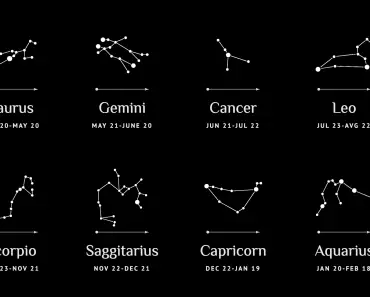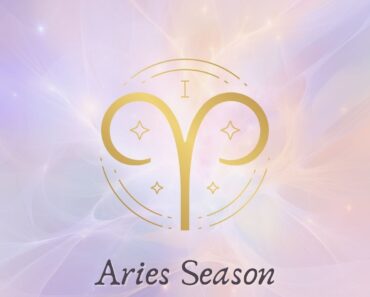Astrology is an ancient practice and tool that has been used for thousands of years to study the stars and their influence on human life. From its earliest beginnings in ancient civilizations to its modern-day resurgence, astrology has captivated people’s imaginations and provided insights into the mysteries of the universe. In this blog post, we will have a closer look at the fascinating history of astrology, from its ancient roots to its current popularity.
Ancient Roots of Astrology
The origins of astrology can be seen back to ancient civilizations in the Middle East, such as the Babylonians and Egyptians. These early astrologers studied the movements of the planets and stars and believed that they had an impact on human affairs. They used astrological charts and symbols to predict the future and gain insights into their own lives.
The Babylonians are credited with creating the first astrological system in the 4th century BCE. They divided the sky into 12 sections, each representing a zodiac sign. The Egyptians also used astrology to guide their daily lives and believed that the stars held the key to their destiny.
The Origins of Astrology:
From Mesopotamia to Egypt Astrology has its roots in ancient civilizations, particularly in Mesopotamia and Egypt. These early astrologers studied the movements of the stars and planets and used them to make predictions about the future. The Babylonians, for example, used astrology to determine the best time for planting crops and for performing various religious rituals.
Famous Astrologers throughout History
Throughout the history, there have been many famous astrologers who have made significant contributions to the field. From the ancient Babylonians to modern-day practitioners, these astrologers have helped shape our understanding of the cosmos and its influence on human affairs.
Astrology in the Digital Age:
The Rise of Online Astrology The rise of the internet and social media has also had a significant impact on the practice and accessibility of astrology. Many astrologers now offer online readings and consultations, and there are countless websites and apps dedicated to horoscopes and birth chart interpretations. This has made astrology more accessible to a wider audience, but it has also raised questions about the quality and accuracy of online readings.
Astrology in the Classical World
Astrology continued to gain popularity in the classical world, with the Greeks and Romans adopting the practice and developing their own systems. The famous Greek philosopher Aristotle believed that the positions of the stars and planets had an impact on human affairs and health.
The Greek astrologer Ptolemy created a system that divided the sky into 12 equal sections and assigned each sign to a different planet. This system is still used today and is known as the Tropical Zodiac. The Romans also developed their own astrological system, which focused on the movements of the moon.
Astrology in Medieval Europe
Astrology reached its peak during the medieval period in Europe, where it was widely accepted and practiced. Astrologers were consulted by kings, queens, and nobles to make important decisions and predict the future. They also used astrological charts to guide medical treatments and diagnose illnesses.
One of the most famous and greatest astrologers of the medieval period was Nostradamus, who predicted many historical events in his famous book of prophecies. Astrology also played a significant role in the development of alchemy, which sought to turn base metals into gold and discover the elixir of life.
Astrology in the Modern Age
Astrology began to decline in popularity during the Age of Enlightenment in the 17th and 18th centuries. With the rise of science and rationalism, many people began to reject astrology as a superstitious and unscientific practice.
However, astrology has experienced a resurgence in popularity in the modern age, with many people turning to astrologers for guidance and insights into their lives. The rise of the New Age movement in the 1960s and 70s brought astrology back into the mainstream, and it has continued to gain popularity ever since.
Today, astrologers use a variety of techniques and methods to create astrological charts and predict the future. The advent of the internet has made astrology more accessible than ever, with online horoscopes and astrological readings becoming increasingly popular.
Debunking Astrology:
Criticisms and Controversies Despite its popularity and longevity, astrology has also faced criticism and controversy throughout its history. Some scientists and skeptics have dismissed astrology as pseudoscience, while others have raised concerns about its accuracy and effectiveness.
The Future of Astrology:
Emerging Trends and Innovations As technology advances and new research is conducted, there may be new trends and innovations in the field of astrology. Some practitioners are already using artificial intelligence and machine learning to analyze astrological data and make predictions. There may also be a renewed focus on the scientific aspects of astrology, with more research being conducted to understand the mechanics of how the planets and stars influence our lives.
Astrology and Society:
The Role of Astrology in Culture and Politics Astrology has often been intertwined with culture and politics throughout history. Kings and queens have consulted astrologers for advice, and astrological predictions have sometimes played a role in political decision-making. Today, astrology continues to be a part of popular culture, with many people reading their horoscopes in newspapers and magazines.
The history of astrology is a fascinating journey that spans thousands of years and many different civilizations. From astrology ancient roots in the Middle East to its modern-day resurgence, astrology has captivated people’s imaginations and provided insights into the mysteries of the universe. Despite its detractors, astrology remains a popular and widely practiced discipline, offering guidance and insights into the human experience.






